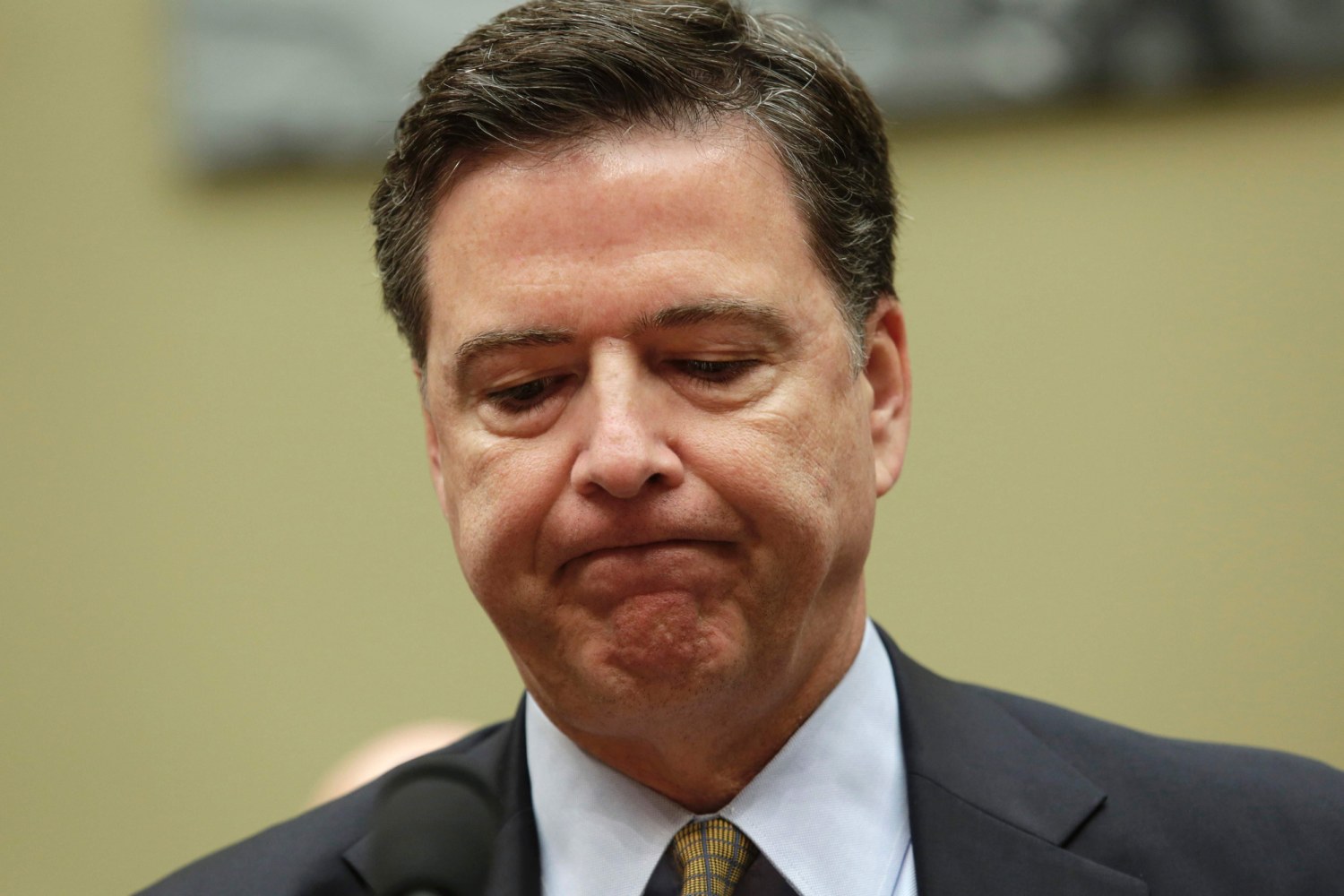
Though very different men, soon-to-be-former House Speaker Paul Ryan, R-Wis., and ousted FBI Director James Comey have something in common. Both fell prey in recent years to the same Washington occupational hazard: reliance on conventional wisdom.
Both made crucial decisions during the 2016 election year believing, as everyone else in town - all the players, all the pundits - that Donald Trump was a cinch to lose.
As Comey confessed to ABC's George Stephanopoulos, he went public with his decision to revisit the investigation into the former secretary of state's emails at the campaign's end because "I was operating in a world where Hillary Clinton was going to beat Donald Trump. . . . That she's going to be elected president, and if I hide this from the American people, she'll be illegitimate the moment she's elected, the moment this comes out."
For his part, Ryan spent 2016 getting ready for a post-Trump Republican Party cleanup operation. Trump's future chief of staff, then-Republican National Committee chairman Reince Priebus, "told Ryan on Election Day that Hillary Clinton would win the presidency," Tim Alberta reported in Politico on April 12, "and Ryan was prepared to give a speech soon afterward divorcing himself - and the party - from Trump once and for all."
To repeat: Comey and Ryan were hardly alone. You could write a thick book about all the important decisions people made - on Wall Street, in Washington, around the world - because they assumed Clinton would win.
The book would need a lengthy epilogue to narrate the scrambling they are still doing to cope with the consequences.
One reason the Republican Congress failed to repeal and replace Obamacare after January 2017 is that they were anticipating a Democratic White House for another four years. Plan A was to keep voting for repeal, thus keeping the Republican voter base happy - as Clinton's veto spared the GOP responsibility for any real-world results. They had no Plan B.
Who knows what Vladimir Putin really thinks about anything? But a plausible view of his reason for interfering in the U.S. election was not to elect Trump, an objective every expert considered far-fetched, but to weaken the likely winner in November, Clinton, whom he had long despised.
We could go on and on. The main point is that politicians and bureaucrats try to fine-tune their futures based on overrated information - and this is probably inevitable. For them to behave otherwise would be to admit they're playthings of history, rather than what the typical public official thinks he or she is: a leader.
Leadership, though, is not what Ryan or Comey exhibited during 2016, if the definition of leadership is the capacity to say: "Here's what I'm doing, because I think it's right, and to hell with the consequences."
Ryan could not unequivocally denounce Trump, full stop, before the election, much less lead a GOP resistance. Comey could not simply adhere to the FBI's traditional rule of not commenting on pending investigations, and let other people worry about the political impact. Both tried to manage perceptions instead, to keep their options open.
Right now, strategic decisions are being made based on new conventional wisdom, which is that Democrats are bound to retake the House in 2018.
This forecast has a lot going for it: a new president's party usually loses seats in his first midterm election; Democrats are energized by opposition to a generally unpopular president they regard, correctly, as a serial violator of democratic norms.
By contrast, Ryan's retirement, along with the retirements of many other mainstream GOP House members, sends a defeatist signal.
And yet: At the end of a week in which there was more bad news for Trump, in the form of a raid on his lawyer's office by federal prosecutors, his approval rating ticked up in the latest Washington Post-ABC News poll. His average rating in all the polls seems unable to dip much below 40 percent, no matter how badly he behaves. Meanwhile, the Democrats' lead on the generic congressional ballot in the Post-ABC poll shrank to 4 percentage points, just 0.5 percentage points greater than the margin of error.
Keep a corner of your mind open to this possibility: Ryan's retirement may help the GOP, because now the pro-Trump party base no longer feels that a vote for the party is a vote for a speaker they loathed as too soft on immigration.
"To see what is in front of one's nose needs a constant struggle," George Orwell wrote. And for some time now - at least since Trump came down that escalator to announce his candidacy on June 16, 2015 - we have been looking at an America where the old political rules do not necessarily apply.


 Contact The Editor
Contact The Editor
 Articles By This Author
Articles By This Author